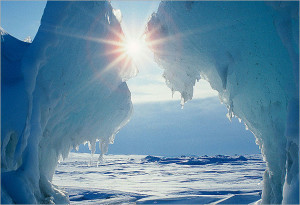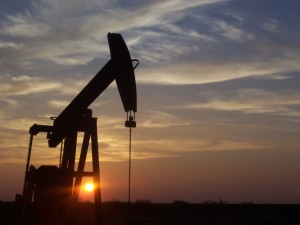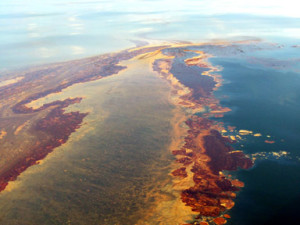Exploration for Fossil Fuels in the Arctic: Is It Worth the Risks?
 Written by Stephen Macko, Professor, UVA Dept. of Environmental Sciences
Written by Stephen Macko, Professor, UVA Dept. of Environmental Sciences
Together with growing global population come heightened demands for increased energy resources. New technologies for novel energy acquisition and sustainable energy production are rapidly growing and fulfilling part of this need. However, despite increased capacity from those renewable energy resources as well as increased efficiency in utilization, fossil fuels, notably coal, natural gas and oil, remain a reasonably inexpensive resource for providing most of the present needs and are expected to remain so for the foreseeable future. Oil demand alone is expected to grow by one to two percent per year for decades. As a result, continued exploration for petroleum in new regions of the planet is increasingly occurring. While advanced technologies are being vigorously pursued to allow for drilling the offshore in deeper waters, an alternate novel location for exploration and production is the Arctic. The Arctic includes 25 geologically defined regions that may contain up to 100 billion barrels of oil and trillions of cubic feet of natural gas, some in the form of gas hydrates. These resources may represent the largest of the World’s remaining untapped gas reserves and much of the undeveloped oil reserves. A significant portion of these reserves lie offshore on the shallow continental shelves of the Arctic, while a portion is suspected to exist in deeper waters. With global warming and diminishing sea ice in the Arctic, new avenues will open for exploration beyond the developing sea lanes which are economically and energetically more efficient for transport.
These reserves, when accessed, will have implications for the global climate, and for the environmental health of Arctic. Oil spills, whether from leakage, accidental blowouts, or shipping will pose a tremendous risk to Arctic ecosystems. The Arctic is characterized by a short productive season, low temperatures, high energy storms and limited sunlight. As a result, it could take many decades for Arctic regions to recover from habitat disruption, tundra disturbance and oil spills. Marine ecosystems are particularly vulnerable.
There is a need for critical advance planning and preparation before exploration of the Arctic should occur. There is no proven effective method for containing and cleaning up an oil spill in ice-covered/icy waters. Prevention at all costs, beyond that which we have in place in present operations, is a prerequisite. The impact of an oil spill on fisheries and threatened mammal populations is presently incalculable. Development and use of Arctic-class ice-resistant oil rigs will be required. Drilling secondary pressure relief wells may be deemed necessary given the remote location and potential inability to address the urgency of an accident. The difficult conditions of the Arctic and its distance from where response capacity is stationed mean it could take days or weeks to respond to a spill, even during ice-free periods, if at all. Standard clean-up technologies including booms, and surfactants will likely not be able to be used for at least a portion of the time the well would be drilled or operating, or in the event of an accident. The behavior of materials like Corexit on ice or in water with pack ice, is essentially unknown.
Lack of cautious application of new technologies and oversight has led to increasing levels of pollutants, sometimes catastrophically, as was evidenced in the recent 2010 Deepwater Horizon oil spill in the Gulf of Mexico. As a consequence of increased fossil fuel exploration, extraction and transport, the risk of contamination is heightened. At present only minimal preparation for impact and cleanup exists for this eventuality in fragile Arctic environments. Only through an appreciation for the past, in more forgiving locations, and a comprehensive understanding of the present fragile of the Arctic, can we anticipate the future. The potential for that vision of the ocean lies with cooperation among all nations.
- A Revolution in the Air: The Wright Brothers Take to the Sky on December 17, 1903
- Musings on National Violin Day
- Making the Promise Real: How a UN Tax Convention Can Fulfill the UNDHR’s Vision
- UVA Club of Atlanta: Virtual Pilates Class
- Virginia Club of New York: Annual Book Club Planning Meeting
- UVA Club of New Orleans: Hoo-liday Party


